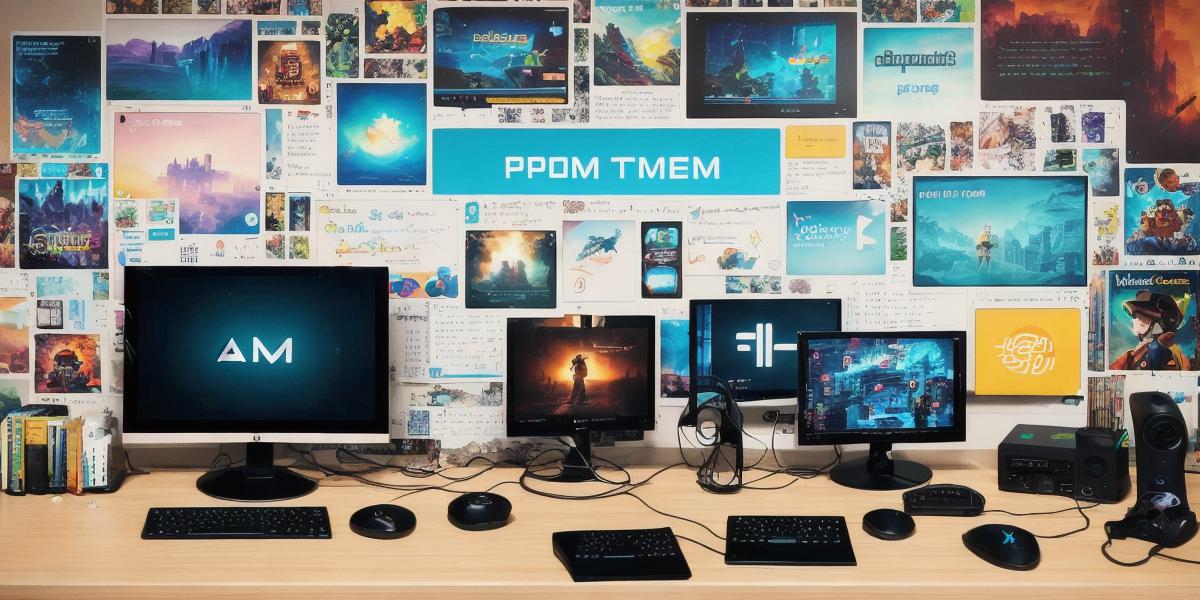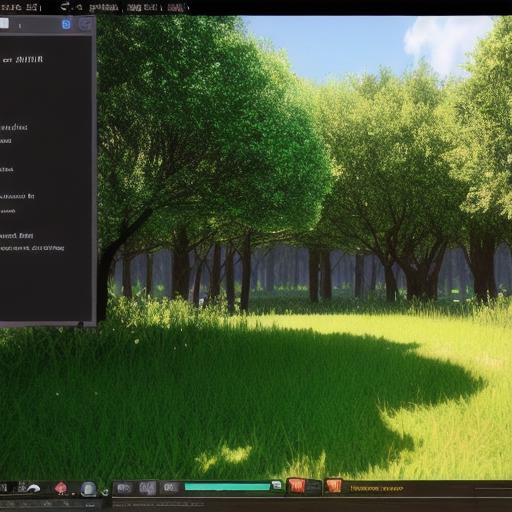If you’re a passionate gamer with a talent for programming or design, pursuing a career in game development may seem like the perfect way to turn your hobby into a lucrative profession. However, before you invest time and money into this field, it’s important to consider whether it’s truly worth the effort. In this article, we will examine the pros and cons of a career in game development, including case studies and personal experiences to help you make an informed decision.
Pros of Pursuing a Career in Game Development
- High Demand for Game Developers
The global video game market is expected to reach $209 billion by 2023, with a compound annual growth rate (CAGR) of 16.6% from 2020 to 2027. This growth is driven by factors such as the increasing popularity of mobile gaming and the rise of esports. With this high demand for game developers, there are plenty of job opportunities available in this field.
- Creative Freedom

Game development allows you to exercise your creativity and bring your ideas to life. You have the freedom to design games that are unique and engaging, with endless possibilities for storytelling, art, and technology. This can be a highly rewarding experience, both personally and professionally.
- Good Salaries
The average salary for game developers in the United States is around $92,000 per year, with some positions paying significantly more. While this may vary depending on factors such as experience level and location, it’s clear that a career in game development can be lucrative.
- Opportunities for Advancement
As the video game industry continues to grow, there are plenty of opportunities for advancement within game development. From entry-level positions such as game designers and programmers to more senior roles like producers and executives, there is always room to progress in your career.
Cons of Pursuing a Career in Game Development
- High Costs
Pursuing a career in game development can be expensive, both in terms of time and money. You may need to invest in education and training, as well as in hardware and software to create games. Additionally, the cost of living in major game development hubs like Los Angeles or San Francisco can be prohibitive for many people.
- Long Work Hours
Game development is a demanding industry that often requires long work hours and intense focus. You may need to work late into the night to meet deadlines and ensure that your games are of the highest quality. This can take a toll on your mental and physical health, as well as on your relationships with friends and family.
- High Level of Competition
The game development industry is highly competitive, with many talented individuals vying for jobs at top companies. This means that you will need to work hard to stand out from the crowd and demonstrate your skills and expertise. It may also mean facing rejection and setbacks along the way.

- Limited Job Security
While the demand for game developers is currently high, job security in this industry can be unpredictable. Factors such as economic downturns and changes in consumer preferences can impact the job market for game developers. Additionally, some companies may outsource their game development work to lower-cost locations, which can lead to layoffs and unemployment.
Case Studies: Successes and Challenges in Game Development Careers
- Shigeru Miyamoto
Shigeru Miyamoto is a legendary game developer who created some of the most iconic games of all time, including Super Mario Bros., The Legend of Zelda, and Pikachu. He started out as an artist before moving into game design, and his work has been celebrated for its creativity, innovation, and attention to detail.
Despite his success, Miyamoto has faced challenges in his career. For example, he has criticized the video game industry for focusing too much on profits and not enough on artistry. He has also spoken out about the pressure that game developers face to meet unrealistic deadlines and create games that are popular with consumers.
- John Carmack
John Carmack is the co-founder of id Software, the company behind the Doom and Quake series of games. He is known for his expertise in programming and game engine development, and has been credited with pioneering many of the technologies that are now standard in modern video games.
Carmack’s career in game development has been marked by both successes and challenges. On one hand, he has created some of the most popular and influential games of all time. On the other hand, he has faced criticism for his work on the Wolfenstein series, which has been criticized for perpetuating Nazi stereotypes.
Personal Experiences: What It’s Like to Pursue a Career in Game Development
As someone who has pursued a career in game development myself, I can attest to both the rewards and the challenges of this field. On one hand, it has been incredibly rewarding to bring my ideas to life and create games that people enjoy playing. On the other hand, it has also been challenging to keep up with the demands of the industry and maintain a work-life balance.
One thing that has surprised me is how much time and effort goes into creating a game. From conceptualization to design, programming, testing, and launch, the process can take years and require a team of dedicated professionals. Additionally, the pressure to create games that are popular with consumers can be intense, as failure to meet expectations can lead to negative reviews and lost revenue.
Overall, pursuing a career in game development requires a high level of dedication, creativity, and technical skill. While it may not be the right choice for everyone, it can be a highly rewarding and fulfilling career path for those who are passionate about gaming and have the talent and drive to succeed.
FAQs: Answering Common Questions About Pursuing a Career in Game Development
Q: How long does it take to become a game developer?
A: Becoming a game developer can take several years, depending on your level of experience and education. You may need to invest in training and education, as well as in hardware and software to create games. Additionally, you will need to gain experience through internships or entry-level positions before advancing to more senior roles.
Q: Do I need a degree to become a game developer?
A: While a degree in game development or a related field can be helpful, it is not strictly necessary to become a game developer. Many successful game developers have come from diverse backgrounds, including art, programming, and business. However, having a degree can provide you with valuable skills and knowledge that will help you succeed in the industry.
Q: What are the best skills to have for a career in game development?
A: The best skills to have for a career in game development include creativity, technical skill, attention to detail, problem-solving ability, and teamwork. Additionally, understanding of programming languages such as C++ or Unity, as well as knowledge of game design principles and user experience (UX) design can be helpful.
Q: Is pursuing a career in game development worth the investment of time and money?
A: Whether pursuing a career in game development is worth the investment of time and money depends on your individual circumstances and goals. If you are passionate about gaming and have the talent and drive to succeed, it may be a worthwhile investment. However, if you are not sure whether this is the right career path for you, it may be helpful to explore other options and gain more experience before making a decision.
Conclusion: Is Pursuing a Career in Game Development Right for You?
Pursuing a career in game development can be a highly rewarding and fulfilling career path for those who are passionate about gaming and have the talent and drive to succeed. However, it also requires a high level of dedication, creativity, and technical skill. Before making a decision, it is important to carefully consider your individual circumstances and goals, and to explore other options before committing to a career in game development.



